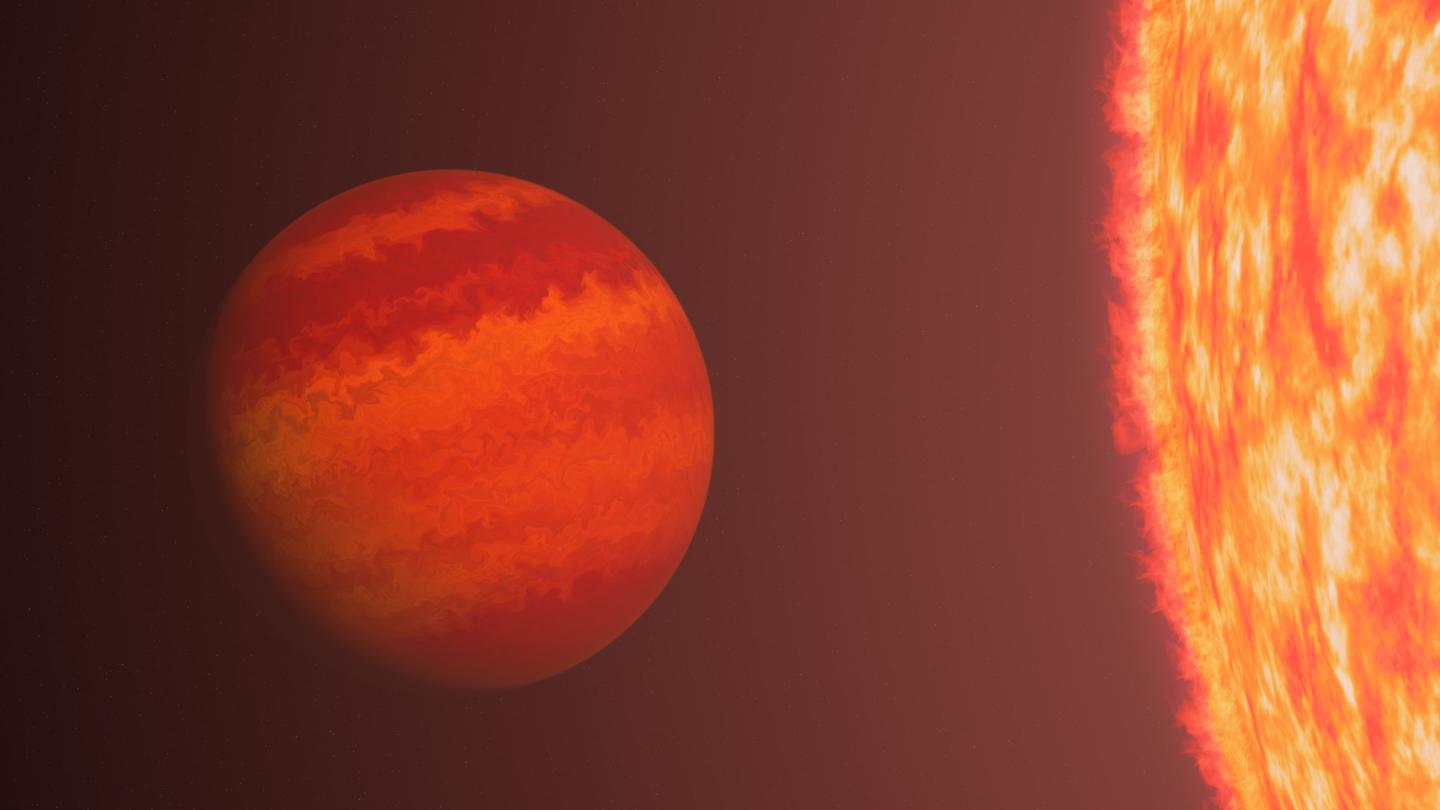
JUNE 9, 2024 BY MATT WILLIAMS
Collected at : https://www.universetoday.com/167276/instead-of-losing-its-atmosphere-an-exoplanet-puffed-up-and-held-onto-it/
Puff planets are a new class of incredibly rare exoplanets, accounting for an estimated 1% of planets in our galaxy. The team discovered Pheonix by combining data from the Transiting Exoplanet Survey Satellite (TESS) with radial velocity measurements obtained by the High Resolution Echelle Spectrometer (HIRES) at the Keck Observatory. Their data indicated that Pheonix is 0.55 times the size of Jupiter but only 0.06 times as massive, which orbits a red giant star with a period of 4.21285 days (about six times closer to its star than the distance between Mercury and the Sun).
Based on the age and temperature of its star and the planet’s remarkably low density, the team expected that Pheonix’s gaseous envelopes should have been stripped away billions of years ago. Based on its density, the team also estimates that the planet is the puffiest “puff planet” discovered to date (roughly 60 times less dense than the densest “hot Neptune”) and that it will begin spiraling into its star in about 100 million years. As Grunblatt explained in a JHU HUB press release:
“This planet isn’t evolving the way we thought it would. It appears to have a much bigger, less dense atmosphere than we expected for these systems. How it held on to that atmosphere despite being so close to such a large host star is the big question.”
“It’s the smallest planet we’ve ever found around one of these red giants, and probably the lowest mass planet orbiting a [red] giant star we’ve ever seen. That’s why it looks really weird. We don’t know why it still has an atmosphere when other ‘hot Neptunes’ that are much smaller and much denser seem to be losing their atmospheres in much less extreme environments.”

These findings could have implications for new insight into the late-stage evolution of planetary systems and help scientists predict what will happen to the Solar System in a few billion years. According to standard models of stellar evolution, our Sun will exit its main sequence phase, expand to become a red giant, and eventually consume the inner planets. Based on these findings, they predict that Earth’s atmosphere may not evolve the way astronomers previously expected. Instead of our Sun blasting it away, our atmosphere may expand to become incredibly “puffy.”
Pheonix is the latest puffy planet examined by the international team based on TESS data. While puff planets are known to be rare, exoplanets like Pheonix are especially elusive because of their small size and low density. In the future, Grunblatt and his colleagues plan to search for more of these smaller worlds and have already identified a dozen potential candidates by combining transit and radial velocity data.
Further Reading: John Hopkins University, The Astrophysical Journal

Leave a Reply